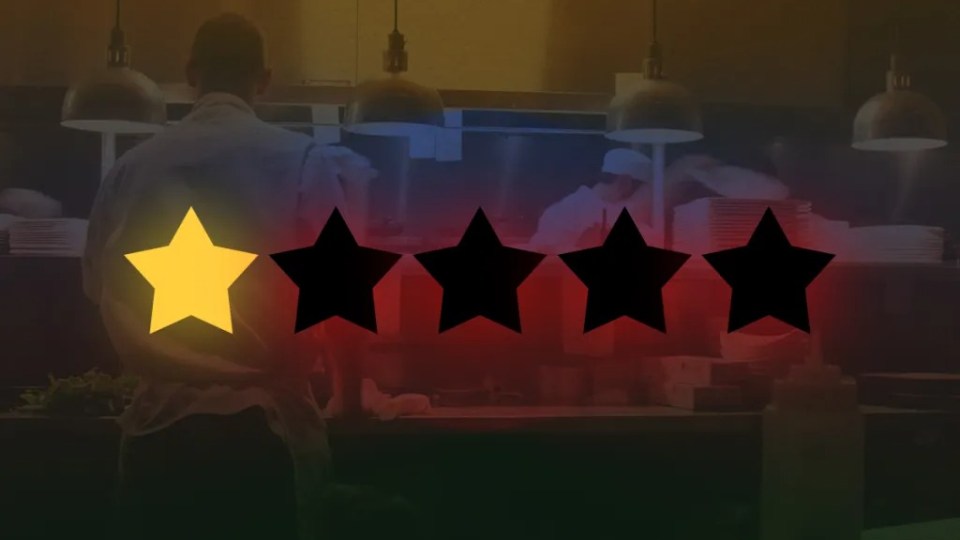


Hospitality owners have spoken out about how detrimental unreasonable Google reviews can be, saying they have a larger impact on a small business than many assume.
Marcus Motteram and Marissa Galatis-Motteram, co-owners of award-winning Adelaide cocktail bar Hains & Co, said “people are actively using Google one-star reviews to really penalise”, rather than using the platform for constructive feedback.
Galatis-Motteram said that prior to the arrival of Google reviews, unhappy customers would address their problems in person.
“If you had an issue or you had a complaint, you’d say ‘can I speak to the manager please? I’m not happy with this’. [We’d reply] ‘drinks not right? Let me fix it for you’,” she said.
“Now people are actively using Google one-star reviews to really penalise you.”
Marissa said she didn’t think “people realise the damage that does to small businesses” when giving out one-star Google reviews.
“Everyone’s a critic,” Motteram said.
He said that for every one-star review at Hains & Co, it took 20 five-star reviews to get back to its average 4.6-4.7-star rating.
“I know that when I travel, what do I do? I go to Google and I look at what places are really good, and I look at those things, and then I’ll go through the reviews,” Motteram said.
“You can see when somebody’s being unreasonable and everything. But we hope that people look at those things, but sometimes they don’t.”
The couple say people have turned to Google reviews rather than complaining directly to the staff “because it’s easy”.
“It’s more comfortable. I don’t have to deal. I save face,” Galatis-Motteram said.
“It’s like keyboard warriors.”

“They didn’t even buy the drink, and the person that bought the drink was happy with the drink,” Motteram said.
Frustrating
Oliver Brown of The Big Easy Group – which is behind Adelaide venues Anchovy Bandit, Bandit Pizza & Wine and La Louisiane, among others – said it was frustrating if patrons decided on a star score based on one individual experience.
“When you see people write a review [that says] ‘I’ve been here three times and have loved it every single time, and I experienced last night [and it] wasn’t the same’ – that’s a frustrating one” Brown said.
“It’s like, OK, you loved it last time, but you chose to not praise us until you had a not so positive experience.”

“You type in any venue, or you type in ‘best restaurants’, and click on a restaurant, the first thing that pops up, even before you go to the website, is that Google business page with the reviews and the star rating sitting there in front of everyone,” he said.
“Unless they come directly through Instagram or something, it’s probably the first idea that they’re making their mind upon is that star rating and those reviews.”
When considering the cost-of-living crisis and its ripple effect on hospitality in general, Google reviews become even more important.
“They just want to make sure they’re going to somewhere where they’re going to enjoy themselves for the money they spend, and I think that looking at reviews can be a decision-maker for them as to where they want to go and spend their money,” Brown said.
“Having, I guess, unfair, detrimental reviews steers people away, or could steer people away, which might not necessarily be merited.”
An alternative
Brown recommends that venue owners and managers offer “an unemotional response” to reviews, one that is “clear in your values, as opposed to trying to have a shot back”.
“People are very attached to their businesses and venues, and … they might want to attack back or they might feel like ‘if I don’t have anything nice to say, I won’t say anything nice at all’,” he said.
“But I actually think it’s a lot better to put your side up, because publicly, people will read it, and you need to have two sides of the story there, I think.”
Meanwhile, he encouraged consumers to “read both sides of the story” when using Google to assess businesses.
“People can look through and make up their own mind,” he said.
“As the world of the internet takes over more, I think people need to learn to be discerning and get as much information as they can to make up their own mind. I don’t think you can just look at the star-rating necessarily. I think you do have to go a little bit deeper.”
As for those who do have bad experiences? Brown said directly emailing a venue was best practice.










